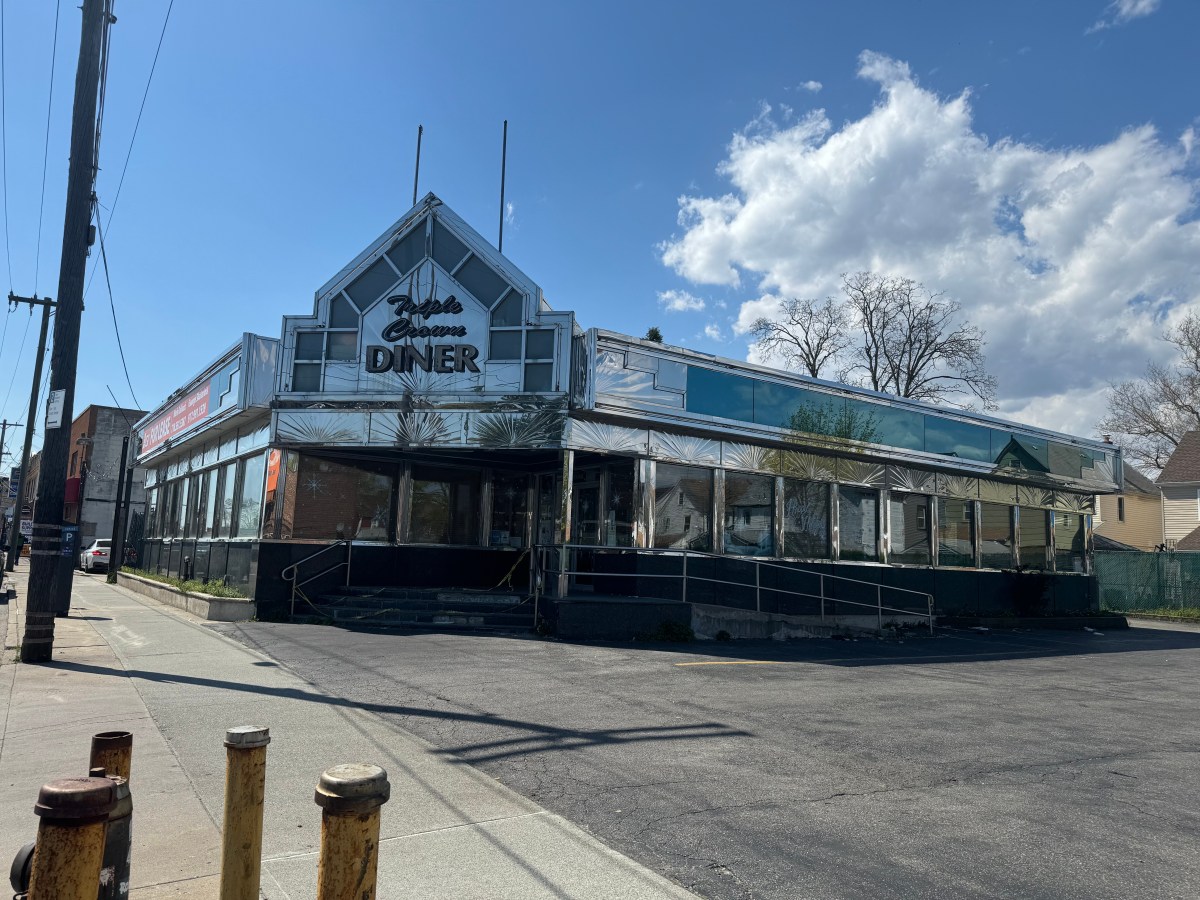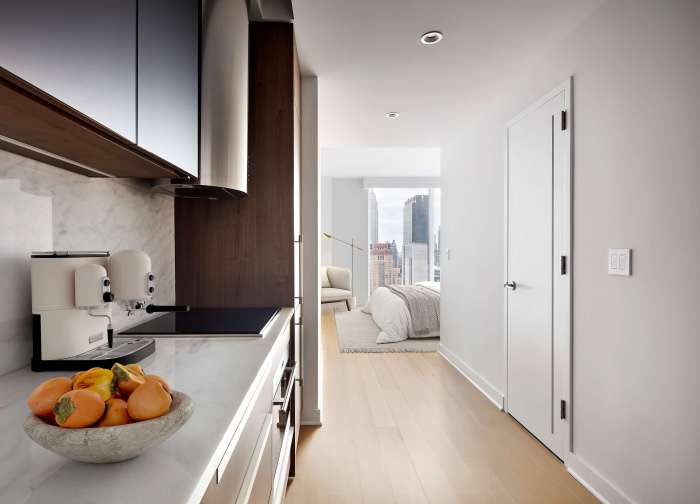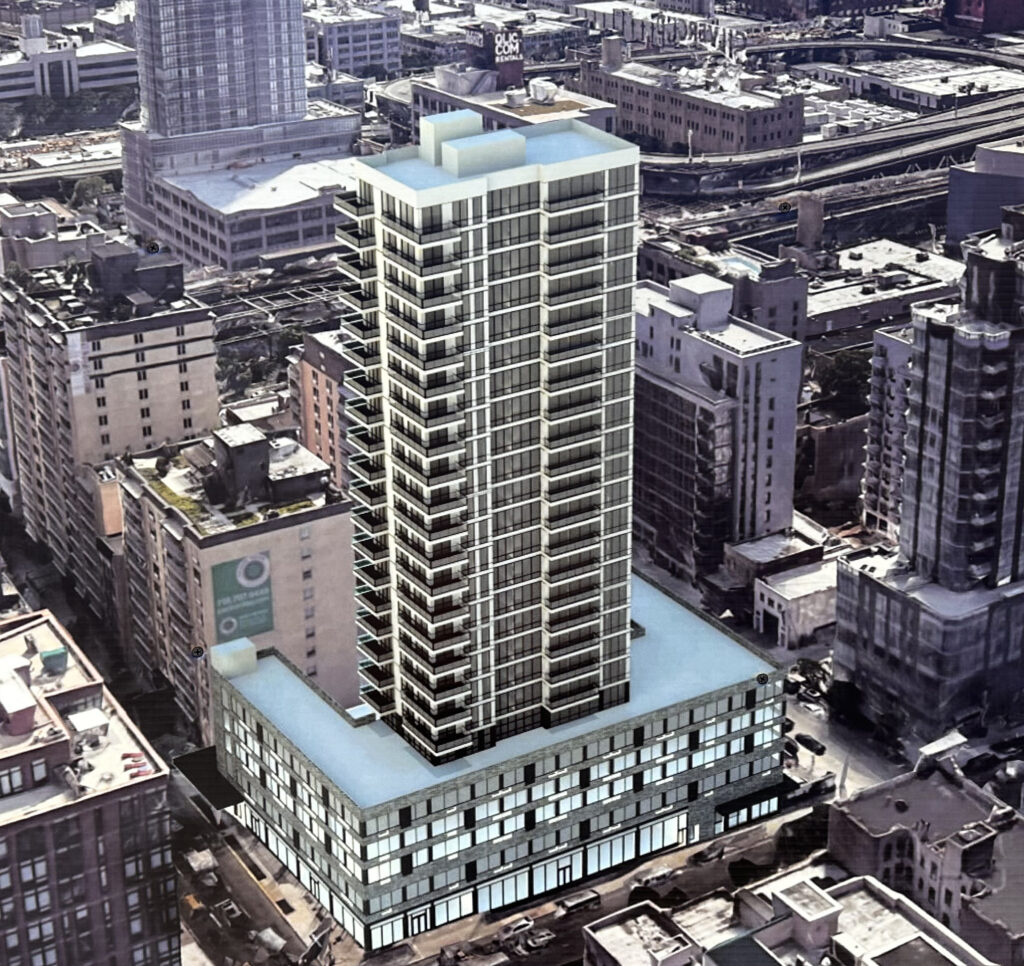
Eight people were arrested Monday after they blocked traffic during a protest over planned hikes on rent-controlled apartments, two days before a hearing that will determine the new monthly cost for tenants.
About 20 protesters stood outside Gov. Andrew Cuomo’s office at 633 Third Ave., chanting, “Rent control is out of control, rent freeze now” and “What do we want? Rent freeze. When do we want it? Now.”
After about 15 minutes of chants and speeches by activists and tenants, eight of them proceeded to block 40th Street at Third Avenue, halting traffic. When the protesters stood their ground despite warnings from NYPD officers, they were arrested and put into a police van.
All eight were charged with disorderly conduct and are due back in court on Jan. 22, according to rally organizer Katie Goldstein.
The protest and arrests were meant to draw attention to the state’s practice of implementing a computed 7.5 percent increase on the city’s 26,000 rent-controlled apartments every year, according to organizers. Activists are demanding that the governor declare a state of emergency to freeze rents.
A public hearing hosted by the state division of Homes and Community Renewal is set for Wednesday at the New York State Assembly office at 250 Broadway in Manhattan. The agency will determine the new rent for such units after hearing testimony from inconvenienced tenants who have been advocating for a freeze for several years.
As the Emergency Housing Rent Control Law, established in 1946, requires tenants to have lived in their rent-controlled apartments continuously since before June 30, 1971, most of the New Yorkers affected by the increase are older residents with fixed incomes.
“It gets harder and harder. You have to sacrifice something. Usually, it’s your medication or prescription eyeglasses, and it changes your lifestyle,” Upper West Side resident Norma Schreier, 86, said.
She has been living in her rent-controlled apartment since 1965, and is to be one of the tenants testifying on Wednesday.
“I want to emphasize the injustices and inequalities as compared to rent-stabilized apartments, which got two years of rent freezes. My apartment costs almost twice as much as rent-stabilized ones,” said Schreier, who added that her main source of income comes from her Social Security benefits.
With rent “going up and up and up,” Schreier now pays $2,600 with an additional $96 fuel charge every month, she said. When she moved into her apartment in 1965, she was paying a monthly rent of $162 with no fuel charge, she said.
Rent-controlled tenants have to pay an extra fee to help the landlord pay for the fuel use in the building, according to Delsenia Glover, director of organizing at Tenants and Neighbors. She was one of the eight arrested Monday.
“These people are paying 50-to-80 percent of their income towards rent. It’s absolutely not equitable. The landlords do not need these people’s money to run their buildings,” she said of the “unfair” fuel charge, which rent-stabilized tenants do not have to pay.
Another Upper West Side resident who will testify on Wednesday, Patricia Stills, 72, said she has witnessed a marked decrease in her quality of life because of rent increases.
“When my son was 4 years old, I took him to see his first Broadway show. I cannot tell you how much I wish I could take my 5-year-old grandchildren to a Broadway show, but I can’t even take myself anywhere,” she said. “It’s just unbearable.”
Stills, who testified at similar hearings in 2013 and 2015, does not believe the public testimonies make a difference.
“The people there already know what they are going to do, and they hardly ever pay attention to what we’re saying,” she said. “Now, only the governor can change it.”
A bill to eliminate the differences between rent-controlled and rent-stabilized apartments, and to reduce the yearly increases on the former, was sent to the New York Legislature by the state’s HCR agency, which is responsible for regulating rent-controlled apartments. However, there has been no response from the Assembly or the Senate on the proposed legislation, according to an HCR spokeswoman.
“HCR’s legal team has researched whether a freeze could be issued and does not believe the administration has the authority to do so under the law,” Charni Sochet, a spokeswoman for HCR, said in an emailed statement. The formula used to compute the increases every year is established by a city statute, and there is no room for discretion, she said.
“Typically, what they do every year is they go to the hearing, they give testimonies regarding the unfairness of the rents and nothing happens,” Glover said, of the tenants. “Their cries have been falling on deaf ears for too many years.”

















